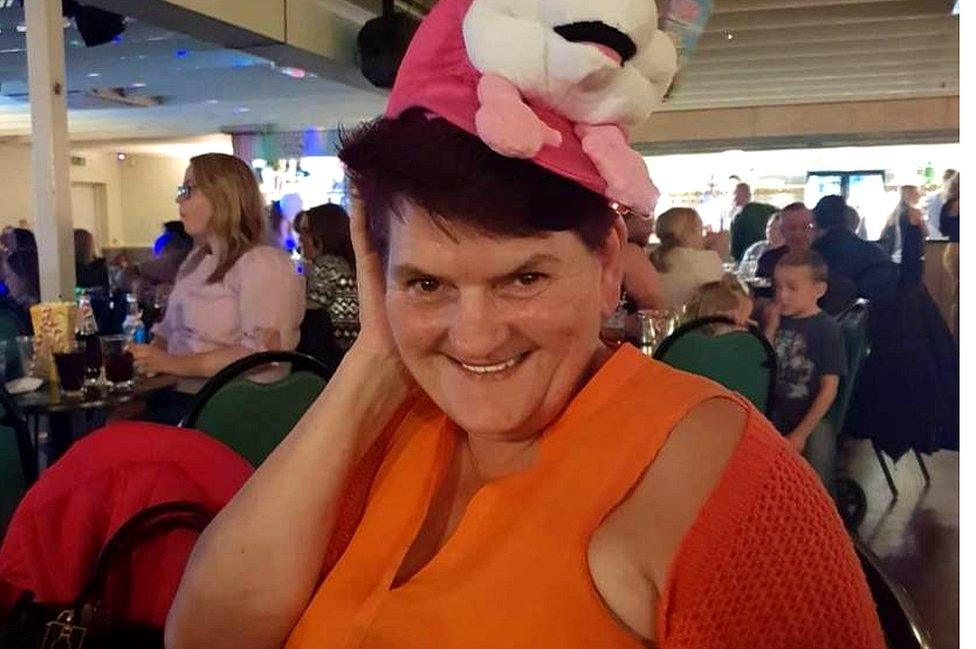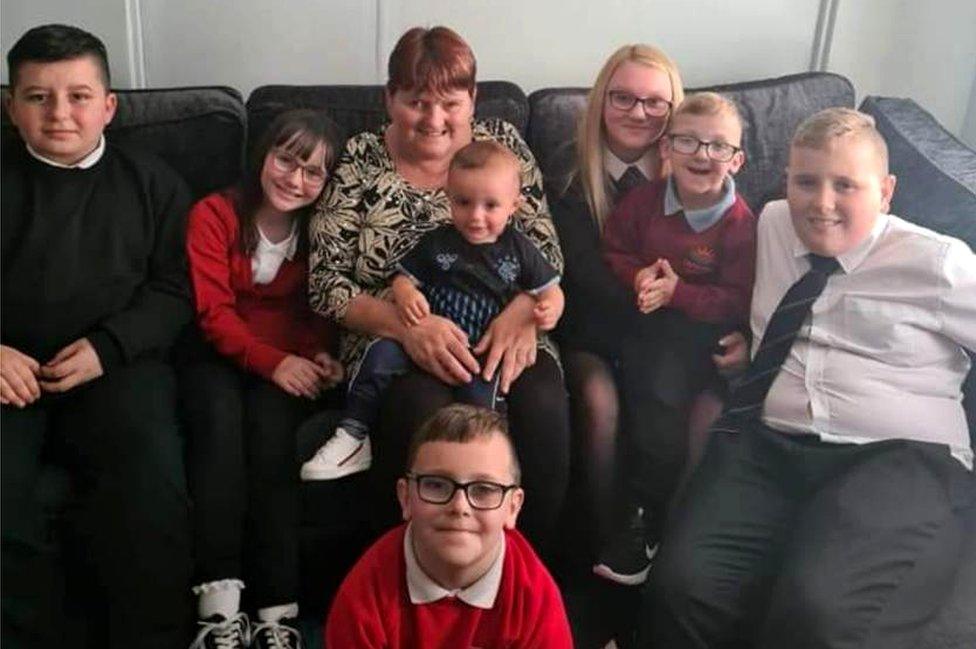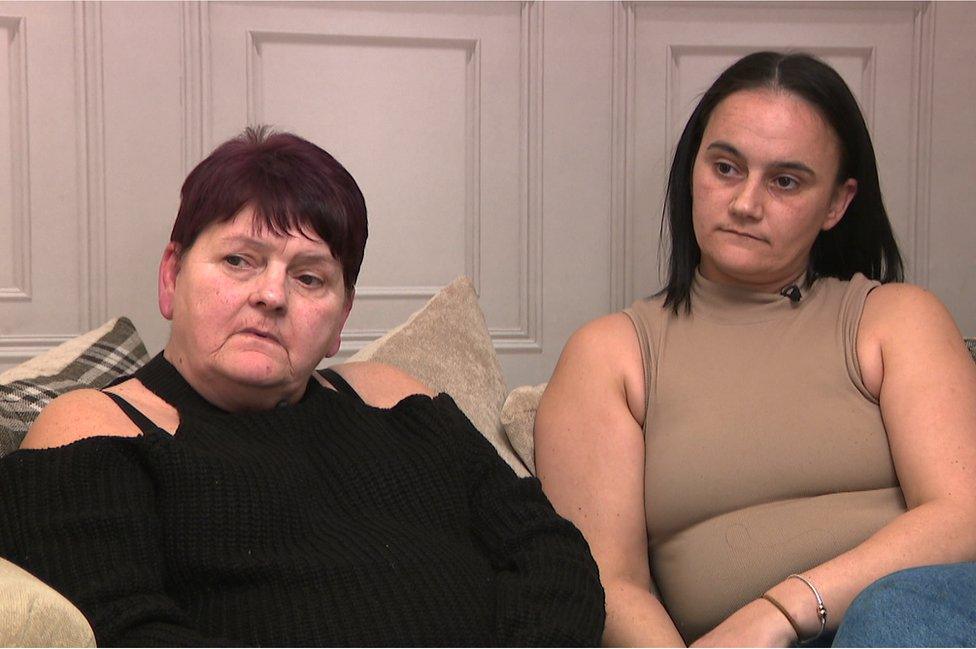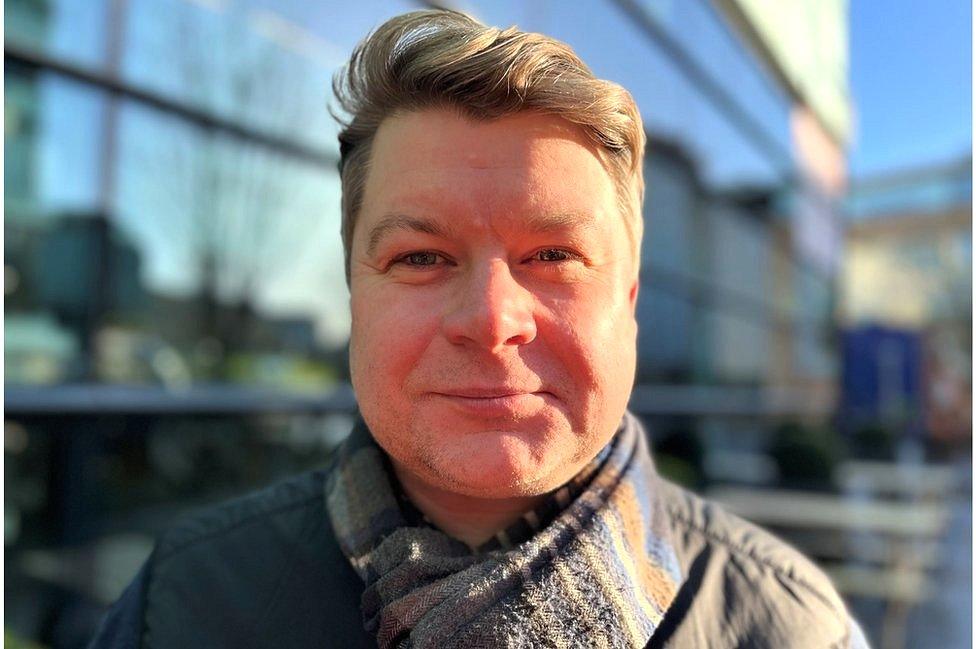'I've been given a do not resuscitate order but I want to live'
- Published

Marie McLean will not be given CPR if her heart or breathing stops
A Lanarkshire grandmother says she is living in fear after finding out doctors issued a "do not resuscitate" order without her knowledge.
The document on Marie McLean's medical file instructs medics not to attempt CPR in the event of an emergency.
The 63-year-old from Airdrie says she now cannot sleep because she is afraid of not waking up.
NHS Lanarkshire said its hospitals followed NHS Scotland guidance on do not resuscitate (DNR) orders.
The heath board said any decisions should be discussed with the patient or carer by medical staff.
Mrs McLean was rushed to hospital almost two weeks ago when she was found to be unresponsive.
Her daughter Louise Gallacher told BBC Scotland: "The consultant took me into the family room and explained we have put her on a ventilator, if this doesn't work we have also put a DNR in place, so we won't be resuscitating her should she flatline.
"There were no discussions with anybody regarding the DNR."

Marie McLean wants to see her grandchildren grow up
Ms Gallacher said medics did not ask whether she agreed with the DNR or whether it was what her mother would have wanted.
"If they would have asked me, I would have said no, absolutely resuscitate her - bring her back," she said. "She has no illnesses, she is not in end of life care, not sick or poorly.
"On her medical records, it's just asthma. They said she had a chest infection or pneumonia and I wouldn't think it would warrant a DNR being put on her.
"We asked for a second opinion and did not get it. We asked to speak to the consultant when we were up in the critical care ward and we did say that we did not agree with it."

What is a 'do not resuscitate' order?
A DNR - also known as a DNACPR or a DNAR - is a form filled in by a doctor or senior nurse which instructs medial staff not to perform cardio-pulmonary resuscitation (CPR) treatment to attempt to restart the heart and breathing after they have stopped.
Other treatments will be used - but not CPR.
The decision has to be taken because CPR, which can involve chest compressions or an electric shock, often does not work and very few people make a full recovery. Near the end of life, there may be no benefit in resuscitation.
In most cases people should be informed when a DNR is in place and medics should discuss it with the patient or next of kin.
Official guidance states no doctor will refuse a patient's wish for CPR if there is a "fair chance" of success - but patients cannot demand treatment that will not work.
Source: NHS Scotland's DNACPR factsheet for patients and carers , external


Louise Gallacher was told by medical staff the order was already in place when she arrived at the hospital
Ms Mclean has now been discharged from hospital but she fears becoming ill again.
"I'm not sleeping at night," she said. "I am panicking in case I don't wake up. I can't get it out of my head.
"I've been in and out the hospital with my chest, but the next time if I go in like that or not even as serious as that, they'll maybe say oh well she's got a DNR, just let her go. That's what's going through my head.
"I'm scared that because of the state of the health service, and not having beds..."
"Give me a chance. I don't want to die, I've got grandweans. I want to still live."
Ms Gallacher added: "If the doctors don't think it is beneficial and won't save her then that's fine. If my mum didn't have any quality of life we might be in agreement. But my mum wants to live.
"It is playing God with people's lives and it shouldn't be their decision."
'Shock, anxiety and fear'
Age Scotland says it has heard from people who are finding out "almost by accident" that they have DNR orders, without having a conversation about it.
Adam Stachura, its head of policy and communications, said it was creating "shock, anxiety and fear" among those affected.
"It is something there is too much secrecy about and the fact people are finding this out by accident means the process isn't working at all," he said.

Adam Strachura from Age Scotland said there was "too much secrecy" around the orders
He wants to see more consistency in decision-making with patients although ultimately the decision rests with the clinician.
"You can speak to your doctor but you don't have a right to say remove this," he said. "But people should have a right to find out if there is one in their name, who made the decision and when and be able to question that to better understand it."
'Compassion, care and tact'
Judith Park, director of acute services at NHS Lanarkshire, said all its hospitals followed NHS Scotland guidance.
"In terms of good practice, any decisions regarding the application of the policy should be discussed with the patient and/or carer by medical staff and this is documented in the patient record," she said.
"It is important to note that the policy guidance refers only to 'do not attempt cardiopulmonary resuscitation'. The guidance is clear that patients will continue to be managed with whatever treatments that are appropriate for their health and comfort irrespective of their DNACPR status."
The Scottish government said that its guidance was clear that healthcare professionals were expected to discuss treatment options openly and honestly with patients and families.
A spokesperson said: "It is essential that the information that CPR cannot be offered is clearly and sensitively shared with patients unless it is judged that the conversation would cause physical or psychological harm.
"Where a patient lacks capacity to engage with this conversation, relatives or others close to the patient must be informed without delay where that is practicable and appropriate.
"CPR will not always be an effective or viable treatment option for everyone, and where clinicians determine that this is the case, conversations should always be handled with the upmost compassion, care and tact.
"When a disagreement occurs, individuals can always request a second medical opinion. No one should ever feel pressured in any way when they are discussing treatment options such as CPR."